New Scientist covers the latest developments in science and technology that will impact your world. New Scientist employs and commissions the best writers in their fields from all over the world. Our editorial team provide cutting-edge news, award-winning features and reports, written in concise and clear language that puts discoveries and advances in the context of everyday life today and in the future.
Elsewhere on New Scientist
Hormonal hope • With the tools now at hand, there is no reason to neglect hormonal conditions
New Scientist
A rare find • A large meteorite recovered from Antarctica demonstrates why it is the perfect place to go hunting for space rocks, reports Alex Wilkins
Earth’s core is spinning slower • Measurements of earthquakes suggest that Earth’s core has started spinning more slowly and may be about to switch the direction in which it spins, reports Leah Crane
California still grappling with historic drought despite intense rainstorms
Teenage Egyptian mummy had ‘second heart’ made of gold
JWST images show a nebula shaped by a multi-star system
Milk may have fuelled growth spurt in ancient Europe
Analysis Health • The first ever vaccine against RSV could be approved in 2023 Promising trial results mean an approval is expected, with effective antibody treatments already available in the EU and UK, writes Michael Le Page
Planets in the ‘habitable zone’ may not be good for life
More vegan food in schools could massively change farming
Meet the donors • Changes to the laws around anonymous egg and sperm donations in a number of countries are starting to have an effect, reports Jason Arunn Murugesu
The DNA alternative
Why antidepressants leave you flat • A commonly prescribed class of the drug seems to reduce sensitivity to rewarding experiences
Knifefish make electric ‘chirps’ to detect other fish
Hackers make computers fry their own chips
Human waste could help deal with global fertiliser shortage
Analysis Health • Can you reduce dementia risk? A UK charity’s online tool suggests lifestyle changes that could cut your risk of dementia, but the condition isn’t usually preventable, says Clare Wilson
Chimpanzees can’t match 5-year-old children in test of flexible thinking
Vagus nerve may be key to halting inflammation
Mouth bacteria are shared in the home
Crocodile shoes, without the crocs
Starfish could be wiped out by heatwaves this century
Really brief
Governing space • Access to space is growing, with more than 70 nations now operating space programmes. We urgently need to update international rules, says Sarah Al Amiri
Artificially intelligent • The robot doctor will see you soon Trained on real electronic health records, medical AIs are making rapid progress. How long before we see these tools in the clinic, wonders Alex Wilkins
Birds of a feather
Your letters
Tainted from the get-go? • A convincing new book reveals how space technology was born out of appalling weaponry – and still has a militaristic bent, finds Paul Marks
Cosmic stories • Can the elusive physics of the universe become sci-fi gold? Boyd Tonkin explores an anthology based on CERN’s research
Don’t miss
The film column • Be careful what you wish for In the chilling new sci-fi horror M3gan, a young orphan is cared for by a new-generation android tasked with protecting her from emotional and physical harm. What could possibly go wrong, asks Simon Ings
“We’re essentially rewriting the whole story of cosmology” • To better explain the cosmos we see, physicist Neil Turok has proposed the existence of a mirror-image universe stretching back in time from the big bang. He tells...
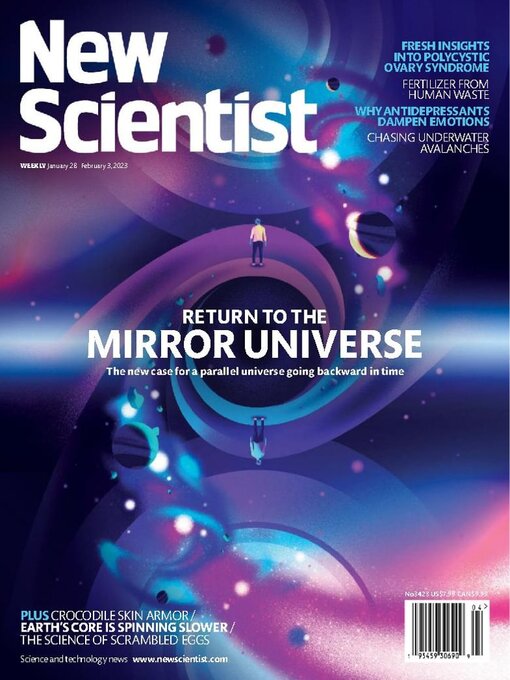
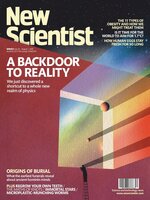 Jul 26 2025
Jul 26 2025
 Jul 19 2025
Jul 19 2025
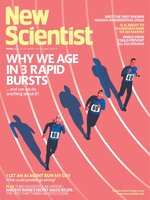 Jul 12 2025
Jul 12 2025
 Jul 05 2025
Jul 05 2025
 Jun 28 2025
Jun 28 2025
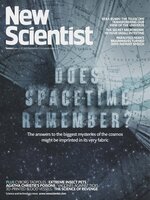 Jun 21 2025
Jun 21 2025
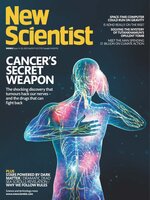 Jun 14 2025
Jun 14 2025
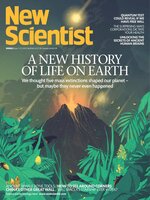 Jun 07 2025
Jun 07 2025
 May 31 2025
May 31 2025
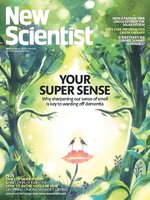 May 24 2025
May 24 2025
 May 17 2025
May 17 2025
 May 10 2025
May 10 2025
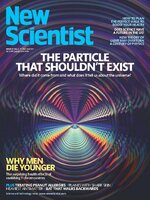 May 03 2025
May 03 2025
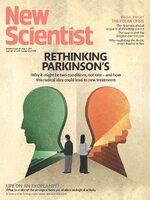 Apr 26 2025
Apr 26 2025
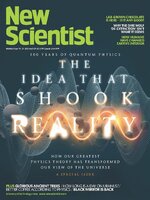 Apr 19 2025
Apr 19 2025
 Apr 12 2025
Apr 12 2025
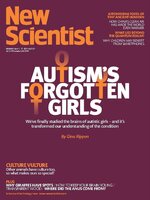 Apr 05 2025
Apr 05 2025
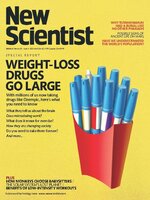 Mar 29 2025
Mar 29 2025
 Mar 22 2025
Mar 22 2025
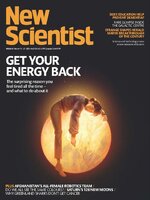 Mar 15 2025
Mar 15 2025
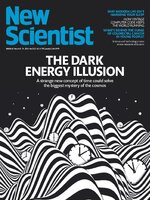 Mar 08 2025
Mar 08 2025
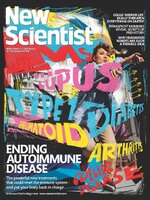 Mar 01 2025
Mar 01 2025
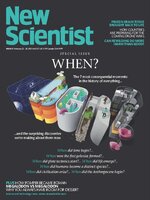 Feb 22 2025
Feb 22 2025
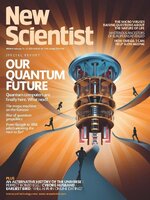 Feb 15 2025
Feb 15 2025